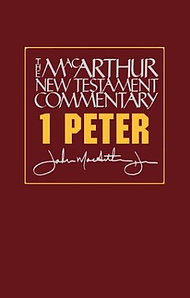 Having read to my daughters, reviewed, and recommended this book in the past, I will simply paste the introduction here to give you a good sense of the focus of this great resource for parents:
Having read to my daughters, reviewed, and recommended this book in the past, I will simply paste the introduction here to give you a good sense of the focus of this great resource for parents:
Now, some people think the Bible is a book of rules, telling you what you should and shouldn't do. The Bible certainly does have some rules in it. They show you how life works best. But the Bible isn't mainly about you and what you should be doing. It's about God and what he has done.Other people think the Bible is a book of heroes, showing you people you should copy. The Bible does have some heroes in it, but (as you'll soon find out) most of the people in the Bible aren't heroes at all. They make some big mistakes (sometimes on purpose), they get afraid and run away. At times, they're downright mean.
No, the Bible isn't a book of rules, or a book of heroes. The Bible is most of all a Story. It's an adventure story about a young Hero who comes from a far country to win back his lost treasure. It's a love story about a brave Prince who leaves his palace, his throne-everything-to rescues the ones he loves. It's like the most wonderful of fairy tales that has come true in real life!
You see, the best thing about this Story is-it's true.
There are lots of stories in the Bible, but all the stories are telling on Big Story. The Story of how God loves his children and comes to rescue them.
It takes the whole Bible to tell this Story. And at the center of the Story, there is a baby. Every story in the Bible whispers his name. He is like the missing piece in the puzzle-the piece that makes all the other pieces fit together, and suddenly you can see a beautiful picture.

 I found myself referring to this commentary enough during our
I found myself referring to this commentary enough during our 
 Our community group decided to spend 5 weeks going through James so I thought I would read through this commentary as well. I took a winterm class from Douglas Moo on James during seminary was impacted by his knowledge coupled with his obvious pastoral and missionary heart (not often found in a scholar of such caliber). In that class we used his
Our community group decided to spend 5 weeks going through James so I thought I would read through this commentary as well. I took a winterm class from Douglas Moo on James during seminary was impacted by his knowledge coupled with his obvious pastoral and missionary heart (not often found in a scholar of such caliber). In that class we used his